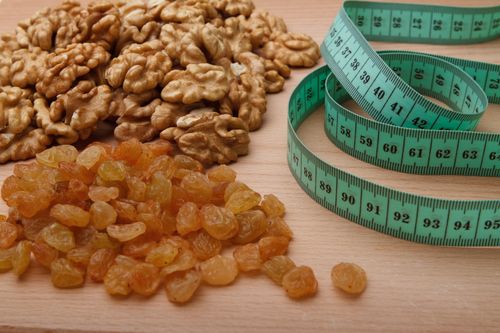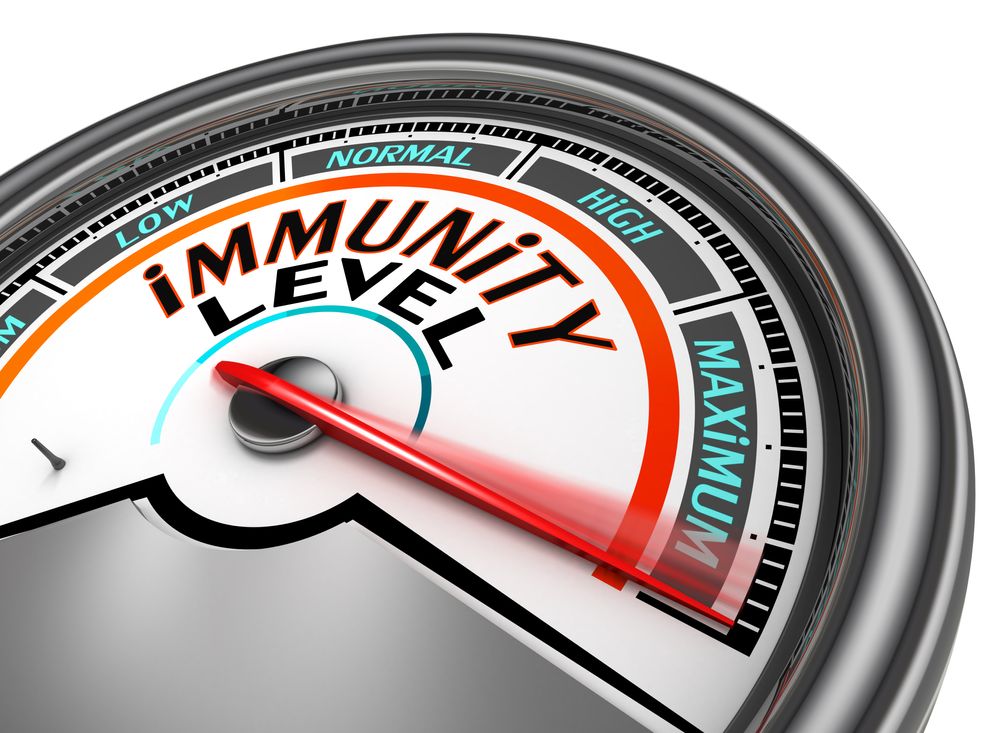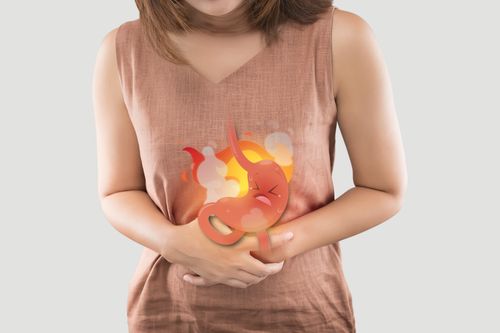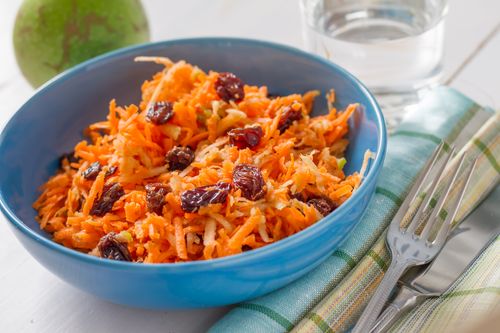12 Rich Benefits of Raisins, Nutritional Facts, and Healthy Recipes
Just like the popular saying goes, “don’t judge a book by its cover,” raisins should not be judged by their shriveled, aged, and dry appearance. These golden (also come in black-ish and green hues) hued dried fruits popularly known as “Kishmish”, are nutrient-filled powerhouses. They are a rich source of fiber, iron, calcium, potassium, and other essential nutrients, that provide you with an energy boost and help you keep your hair and skin glowing. Besides, they make for a quick and simple snack, that can be consumed at any part of the day. Although we widely see them only in sweet dishes like ‘payasam’ or ‘barfis’, adding them as toppings to your yogurt, cereal, granola, baked goods or trail mixes will not only enhance the taste of your dish but also help you get the nutrients your body deserves.
Table of Contents
Nutritional Facts of Raisins
Let’s take a detailed look at what these “little drops of heaven” have to offer in terms of nutrients, in the section below – 1 Cup of Raisins (165g -packed):
- Calories – 508
- Proteins – 3.0g
- Fats – 0.5g
- Carbohydrates – 123.1g
- Fiber – 11.2g
- Calcium – 40.60g
- Iron – 3.76mg
- Magnesium – 43.50mg
- Potassium – 1196.25mg
- Vitamin C – 7.83mg
12 Health Benefits of Raisins
#1 Aids in digestion

Raisins help keep the digestive system healthy as they are rich in fiber, providing a laxative effect to the stomach. A healthy intake of raisins (especially before bed or soaked raisins on waking up) helps relieve constipation, keep bowel movements smooth, and eliminates waste products and toxins from the body. Raisins are also known to bring instant relief in bloating, acid reflux, and flatulence.
#2 Improves eyesight

Raisins are rich in polyphenolic phytonutrients such as vitamin A, A-Carotenoid, and beta carotene which help in keeping your eyesight strong. These nutrients help in protecting your eyes by reducing the free radical action that weakens the vision and causes muscular degeneration as well as cataract.
#3 Regulates blood pressure

Blood Pressure is caused by excess salt consumption in the body. Raisins are low sodium food that also contains a good amount of potassium, which helps in balancing the sodium content in your body and in relaxing your blood vessels.
#4 Improves bone strength

Raisins are packed with calcium which is required for bone strength. Another major nutrient that is required for strong bone formation is Boron, and raisins are rich sources of it. Therefore, eating raisins, especially soaked raisins helps in better absorption of nutrients and improved bone density, according to several research studies.
#5 Supports weight loss goals

Raisins are low in calories and are naturally sweet. They are great to curb your sweet cravings without loading on extra calories. They are also rich in fiber, helping the body feel full for long with just a small serving. Also, they help in controlling your blood sugar levels and beat cravings, thereby, supporting your weight loss goals as well.
#6 Boosts immunity

These little ‘golden droplets’ are loaded with many vitamins and minerals such as calcium, iron, and vitamin C that boost the immune system and help fight off infections. The anti-inflammatory properties and the antibacterial properties of raisins strengthen your immunity, thus making your body less susceptible to infections.
#7 Prevents anemia
Raisins play a trivial role in preventing anemia. Iron is the most essential element required for the formation of red blood cells and raisins are rich in iron, copper, and vitamins that are essential for making red blood cells and carrying oxygen throughout the body.
#8 Cures bloating and acidity

Raisins contain high levels of potassium and magnesium, which are found to reduce acidity. Consuming raisins regularly reduces the toxic level in the blood thereby reducing conditions like bloating, flatulence, and other health issues such as boils and skin diseases.
#9 Prevents tooth decay

Oleanolic acid present in raisins helps in the prevention of tooth decay. They also help in keeping the teeth clean and healthy by removing germs. Raisins also help prevent cavity causing bacteria. Moreover, as raisins are rich in calcium and boron, they help in the prevention of tooth decay as well as help in teeth whitening.
#10 Treats infertility problems
With natural sugars being abundant in raisins, they help release loads of energy and are useful in treating erectile dysfunction in men. Furthermore, raisins have arginine, which helps in improving sperm motility and help in treating infertility.
#11 Regulates cholesterol levels and improves heart health

When raisins are consumed regularly, bad cholesterol is controlled and the good cholesterol is increased. Thereby, ensuring that heart health is improved and helps in mitigating the forming of blood clots and other cardiovascular problems.
#12 Skincare and healthy hair

According to a study, the presence of resveratrol in raisins help in removing toxic cells from the blood and helps in purifying the blood. The skin cells are also prevented from being damaged and help in the prevention of wrinkles and saggy skin. In addition, raisins help in maintaining shiny hair and prevent hair loss problems, especially conditions like flakiness, scalp itchiness, and dandruff.
Now that we have seen the numerous health benefits of raisins, let’s take a look at how they can be added to our diets in the most healthy way –
Top 2 Nutritionist-Approved Healthy Recipes with Raisins
Raisin chutney

Ingredients:
- Raisins 1 cup
- Lime juice 1 tbsp
- Cumin powder ½ tsp
- Chilli powder ½ tsp
- Ginger grated ½ tsp
- Salt to taste
Method:
- Soak raisins in lukewarm water for 1 hour.
- Grind with other ingredients to a fine paste. Store in the refrigerator.
Carrot and raisin salad

Ingredients:
- Soaked raisins 3 tbsp
- Carrots grated 1 cup
- Walnuts – 3 halves
- Mint leaves chopped 1 tsp
- For the dressing –
- Lemon juice 1 tsp
- Honey 1 tsp
- Olive oil 1 tsp
- Salt and pepper to taste
Method:
- Mix ingredients for the dressing.
- Combine salad ingredients, pour the dressing and mix well. Serve immediately.
Summary
They may appear unappealing with their aged appearance and shriveled texture, but raisins are some of the most whole and nutrient-dense foods that can be found in the kitchen. They are rich in fiber, vitamins, minerals, energy, and electrolytes. Their plethora of health benefits like improved digestion, bone health, skin health, and heart health, make it a must in your everyday diet. Known to be a healthier substitute for sugared candies, raisins can be added to your regular yogurt, cereal, granola, baked dishes to not only enhance their taste but also add a nutritional element to them. So, if you are among the many looking for ways to improve your health, then adding these golden dry fruits to your meal is the way to go!
Frequently Asked Questions (FAQs)
A. You can eat about 1/4 cup of raisins in a day.
A. Soaking the raisins increases the bioavailability of nutrients such as vitamins and minerals. Soaked raisins also help in digestion as well as constipation.
A. Raisins are high in fibre along with natural sugars which does not cause a sugar spike thereby making them safe for diabetics.
A. One can have raisins throughout the day, as snacks or sprinkled on salads or fruits or to satisfy your sweet cravings post meal.
A. If one eats more than the recommended serving of raisins daily, it increases the soluble fiber. Too much fiber may cause gastrointestinal upset, such as cramps, gas, and bloating.
